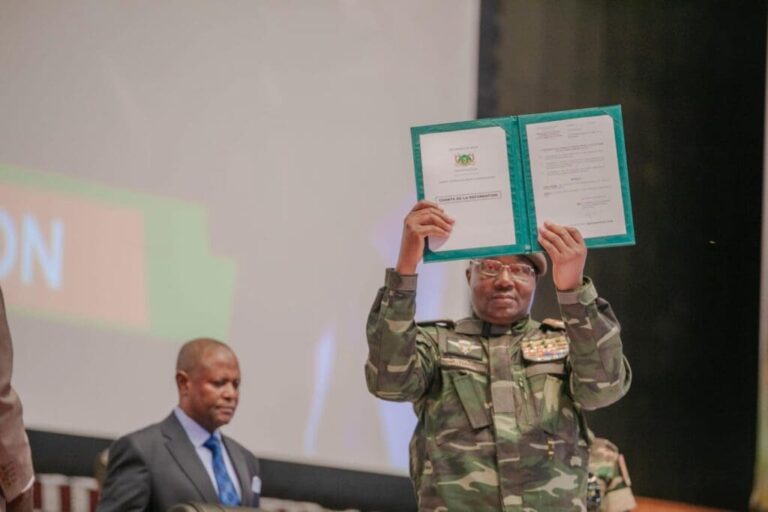Ten landmark decisions and a foundational text are shaking up Niger’s political landscape: the dissolution of political parties, the release of detainees, and the promulgation of the Refoundation Charter.
General Abdourahamane Tiani took these decisive step in Niger’s political transition during Wednesday’s ceremony launching the resolutions and recommendations from last February’s national conference.
Gen Tiani promulgated the charter, a document that redefines the structure of power and grants him a five-year presidential mandate.
Elevated to the rank of army general and Grand Master of National Orders, Tiani signed two ordinances, as reported by Télé Sahel. One dissolves all political parties, a move framed within the political transition launched after the 26 July 2023 coup.
Simultaneously, the president ordered the release of certain detainees or convicted individuals, a gesture aligned with his vision of national reconciliation as recommended by the conference.
“The forgiveness and reconciliation we advocate cannot stand in opposition to the legitimate aspirations of Nigeriens for justice,” he stated, acknowledging the complexity of this approach.
The new charter introduces innovative mechanisms that transform the country’s governance. It mandates a referendum before any foreign military bases can be established and sets new rules for natural resource exploitation, ensuring these primarily benefit the Nigerien people.
Addressing officials and representatives of the nation’s key stakeholders, Tiani called for unity.
“Rather than losing ourselves in pointless divisions, we must rally our strengths and stand together,” he asserted, emphasising the need for national cohesion amid multifaceted challenges.
The president also reaffirmed the National Council for the Safeguard of the Homeland (CNSP)’s resolve to combat corruption, vowing “neither witchhunt, nor impunity, nor political protection” as part of his commitment to a profound institutional overhaul.
AC/sf/lb/as/APA


